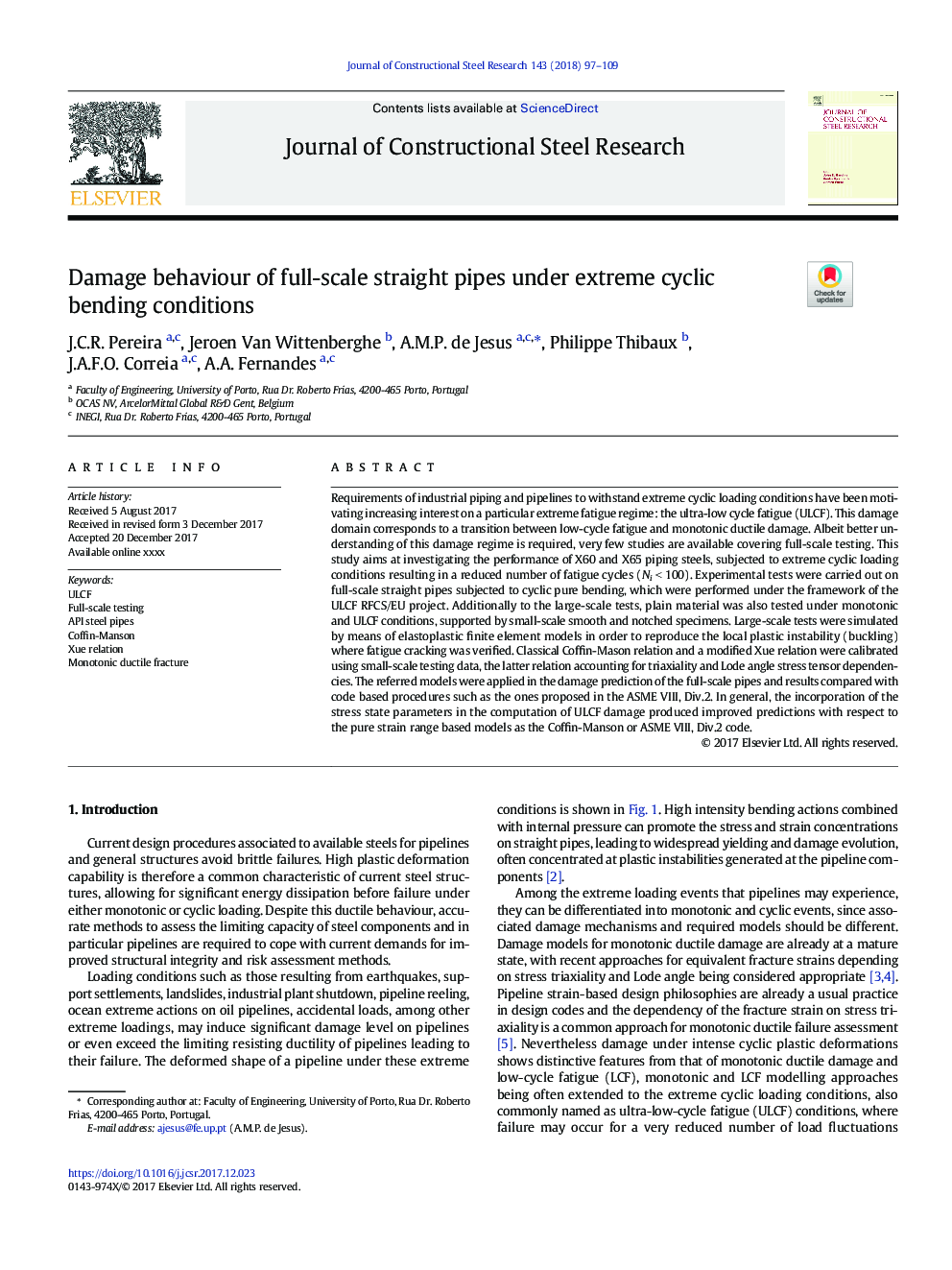| Article ID | Journal | Published Year | Pages | File Type |
|---|---|---|---|---|
| 6750974 | Journal of Constructional Steel Research | 2018 | 13 Pages |
Abstract
Requirements of industrial piping and pipelines to withstand extreme cyclic loading conditions have been motivating increasing interest on a particular extreme fatigue regime: the ultra-low cycle fatigue (ULCF). This damage domain corresponds to a transition between low-cycle fatigue and monotonic ductile damage. Albeit better understanding of this damage regime is required, very few studies are available covering full-scale testing. This study aims at investigating the performance of X60 and X65 piping steels, subjected to extreme cyclic loading conditions resulting in a reduced number of fatigue cycles (Ni < 100). Experimental tests were carried out on full-scale straight pipes subjected to cyclic pure bending, which were performed under the framework of the ULCF RFCS/EU project. Additionally to the large-scale tests, plain material was also tested under monotonic and ULCF conditions, supported by small-scale smooth and notched specimens. Large-scale tests were simulated by means of elastoplastic finite element models in order to reproduce the local plastic instability (buckling) where fatigue cracking was verified. Classical Coffin-Mason relation and a modified Xue relation were calibrated using small-scale testing data, the latter relation accounting for triaxiality and Lode angle stress tensor dependencies. The referred models were applied in the damage prediction of the full-scale pipes and results compared with code based procedures such as the ones proposed in the ASME VIII, Div.2. In general, the incorporation of the stress state parameters in the computation of ULCF damage produced improved predictions with respect to the pure strain range based models as the Coffin-Manson or ASME VIII, Div.2 code.
Keywords
Related Topics
Physical Sciences and Engineering
Engineering
Civil and Structural Engineering
Authors
J.C.R. Pereira, Jeroen Van Wittenberghe, A.M.P. de Jesus, Philippe Thibaux, J.A.F.O. Correia, A.A. Fernandes,
